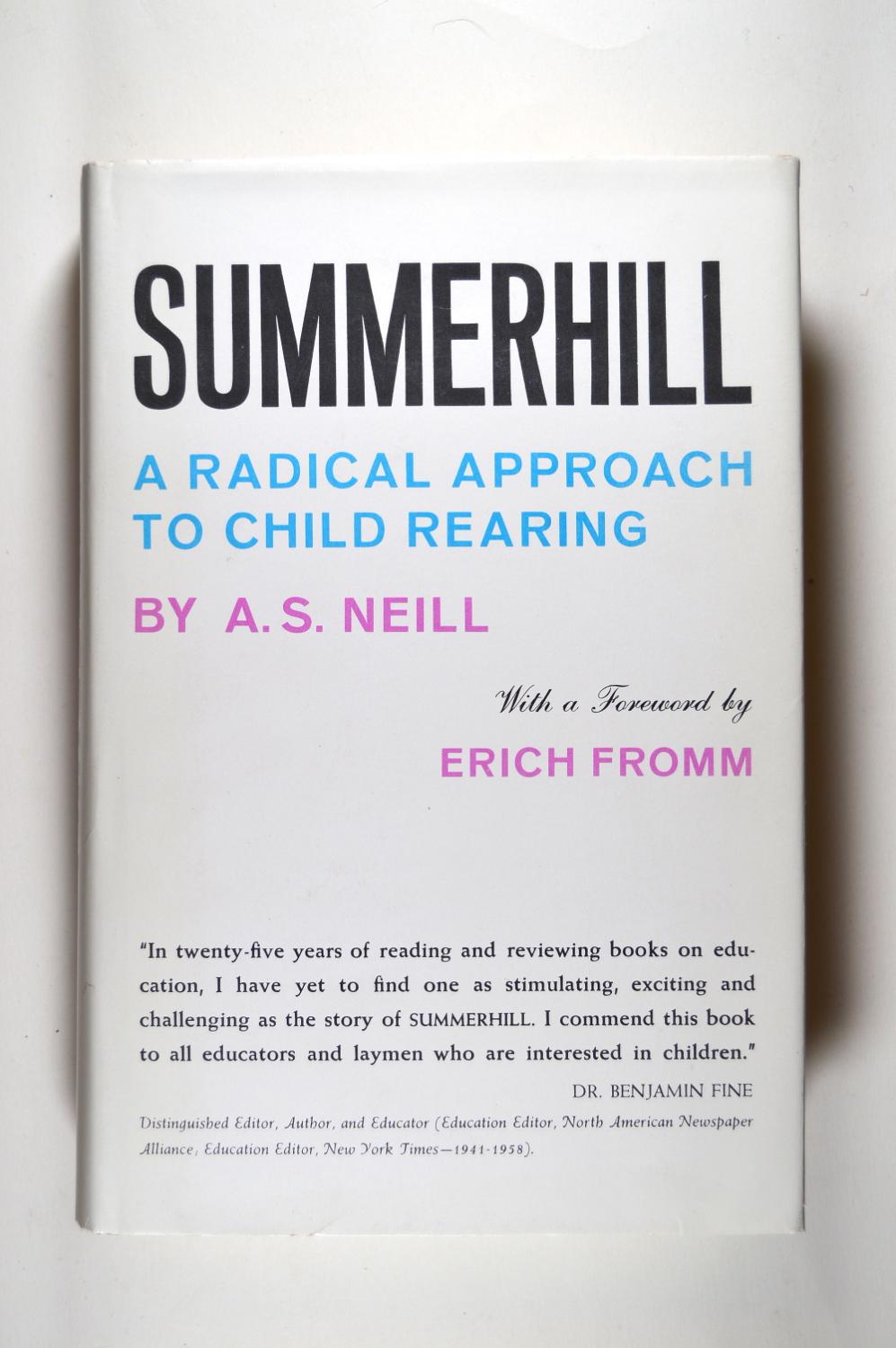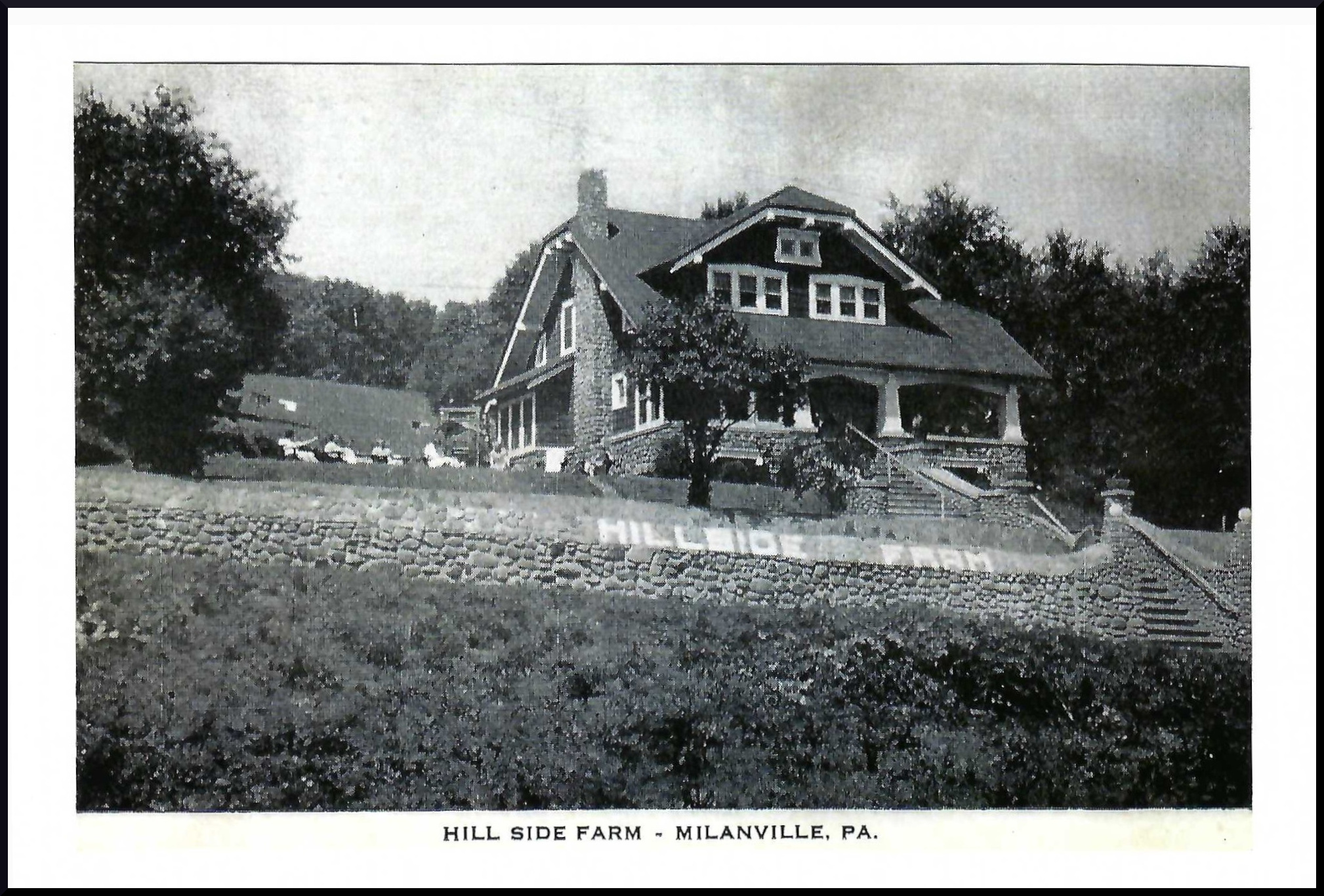Innisfree, 1970-1998
By Tom Rue
Chapter 6 - Experiential outdoor education
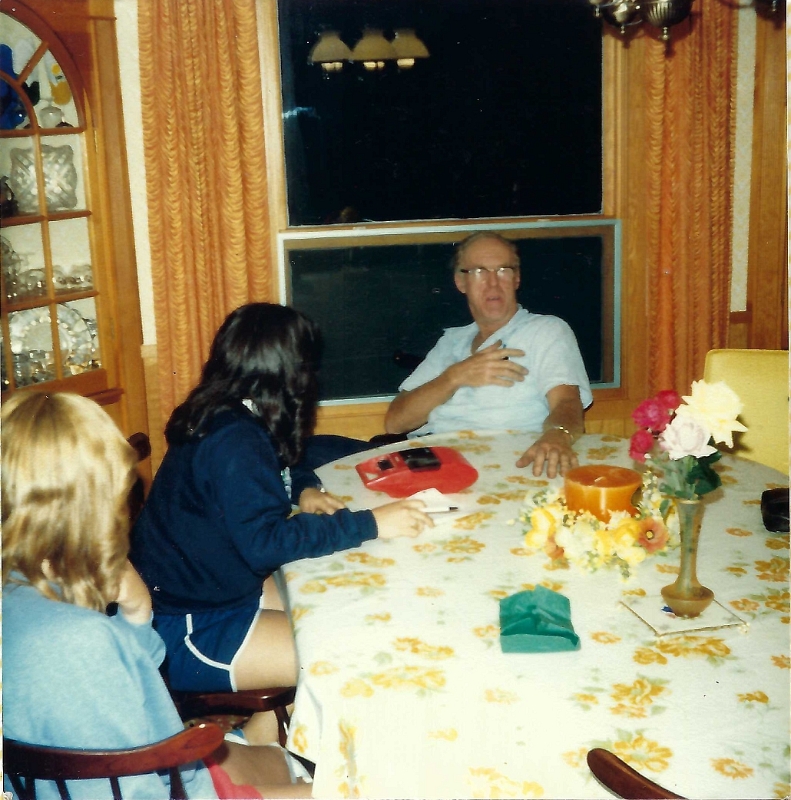
During the years that Frank inhabited the main house, the only known programs that he allowed to occur on the property were groups of students from Lawrence Township Public Schools, where Bud Rue who was then again teaching middle and high school math, was faculty advisor an "Innisfree Club" [album] [album] in the school.
The focus of the Innisfree Club was to plan overnight trips to Innisfree which they then carried out and while there completed learning assignments. One that I recall required math students to measure the Milanville Bridge with precision. These educational activities were individualized for each participant and approved by the faculty advisor, Mr. Rue. (On its face, this might look like a conflict of interest. However, the relationship of Mr. Rue to Innisfree Corporation was fully disclosed to the Lawrence Township Board of Education, who funded the trips.) The district allowed the use of a school bus, which Bud drove.
Click here to download the Lawrence Township Public School District's info for parents, guidelines, schedule, and permission slip dated May 19, 1983 (six-page ditto handout prepared by school administration).
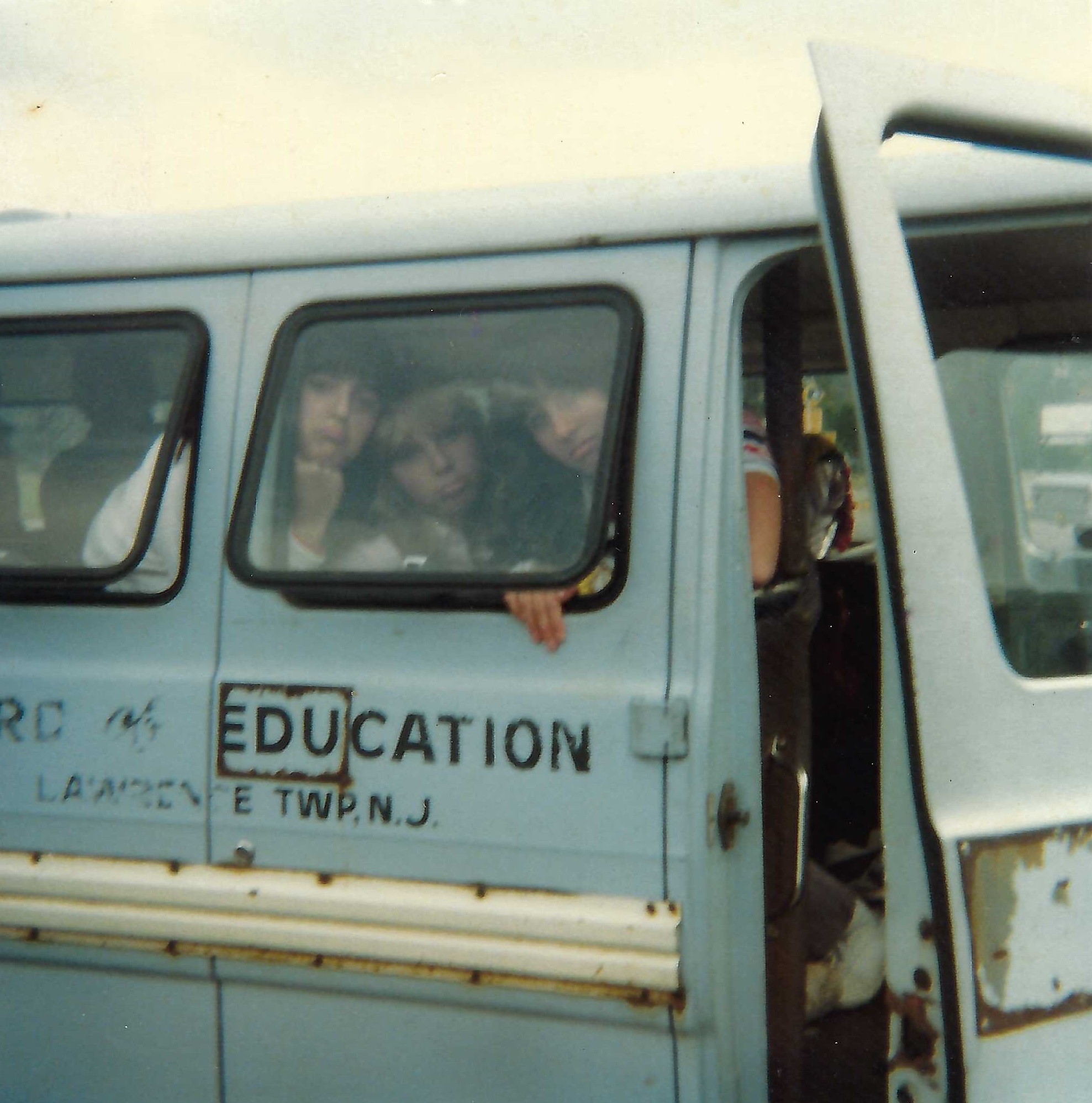
Click here to download a "Dear friends" letter announcing Innisfree's 1983 season. The undated letter was typed in late 1982 by Ann Rue, signed "Bud, Ann, and Tom Rue". These letters went to pretty much anyone in all of our address books inviting them to bring groups to stay at Innisfree at affordable prices. Bud Rue went to Delaware Publications and ordered business cards with the title "Group Organizer" for himself, me, and perhaps others.
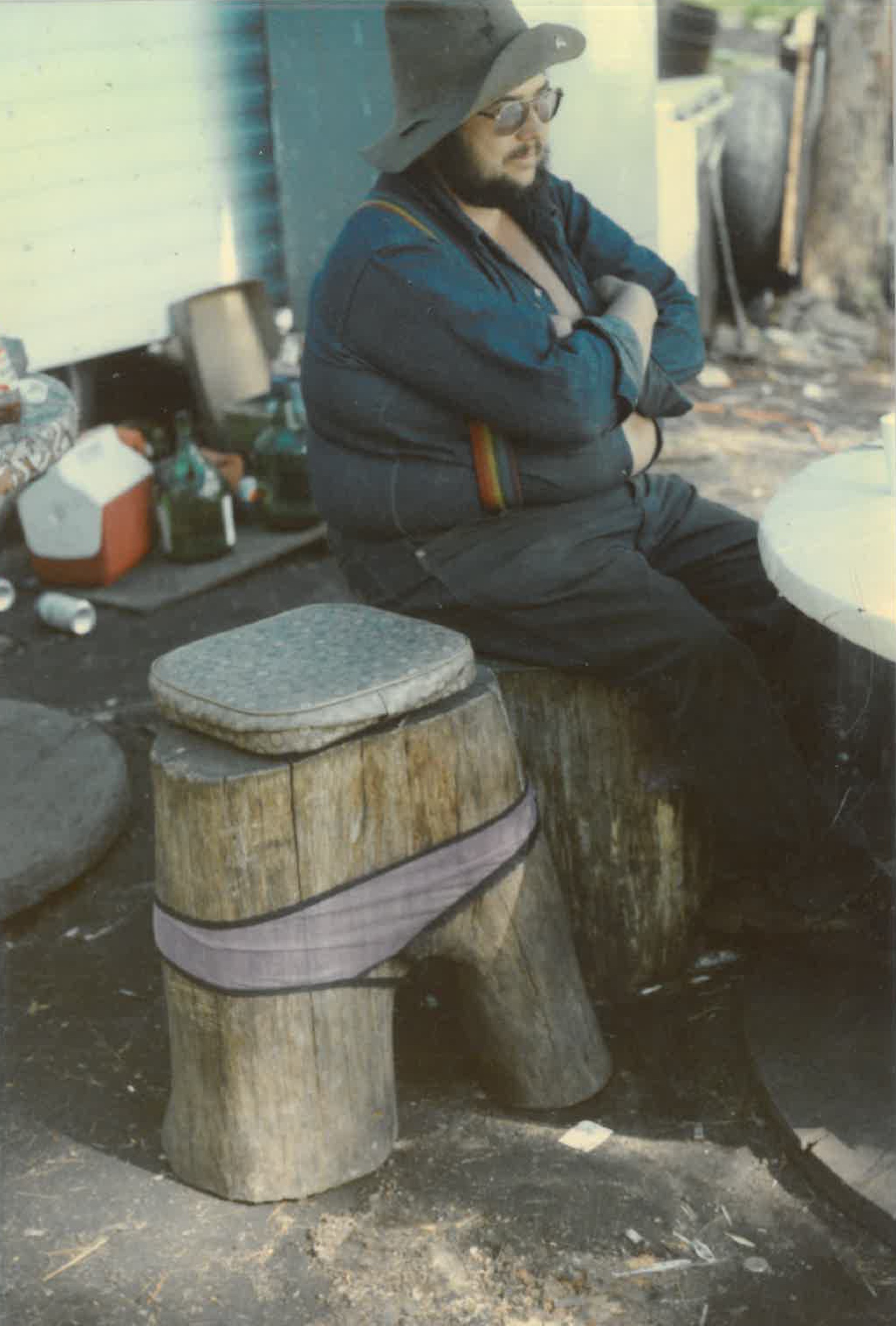
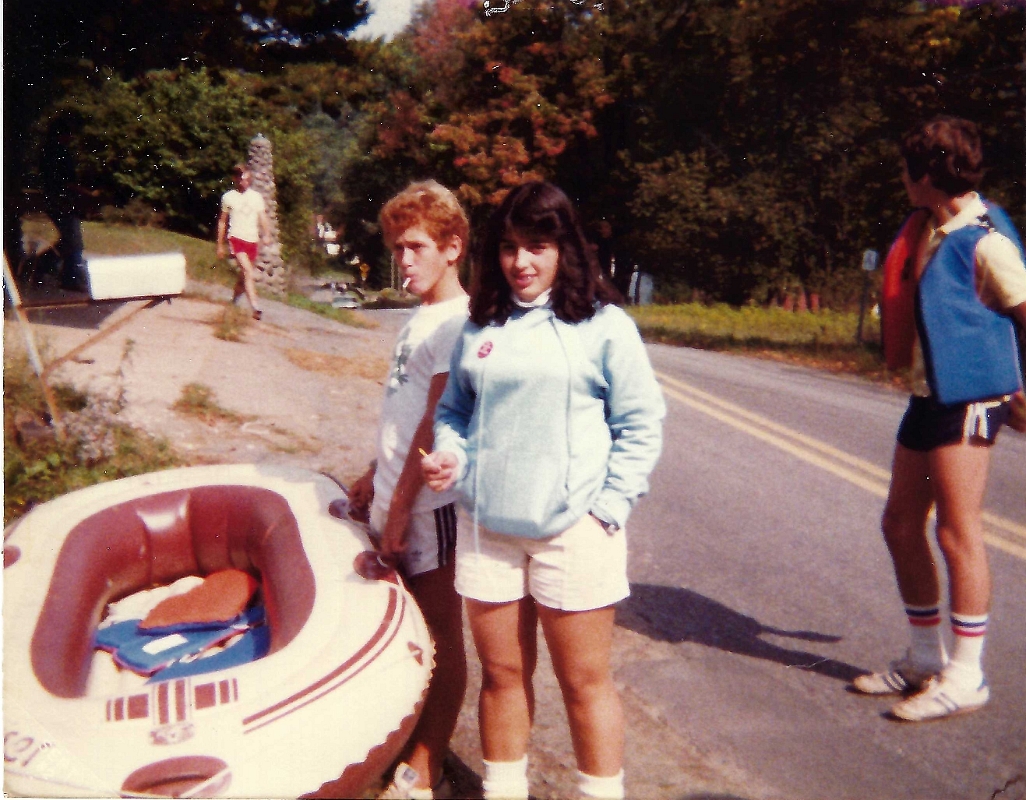
One frequent aid/attendant at "Innisfree Club" weekends in Milanville included literal field lessons from the late Edwin Tyler of Milanville, who was introduced to visiting kids and widely known through much of his life as Taterbug. Tater performed and assisted with many varied tasks on the Innisfree property, including well-drilling, plumbing, light carpentry, and the intermittent operation of a portable still that he owned, giving small bottles of white lighting to anyone old enough who asked. Bud Rue so enjoyed the experience of brewing with Taterbug that he paid Delaware Publications to publish the recipe for Taterbug's wine (with permission of the author). I do not have a copy of the printed version (they were on red card stock), but here is a PDF of the original holographic manuscript. Click here to download a copy of Tater Bug's Hard Cider recipe "writ by the hand of Bud Rue" on October 14, 1986. I remember ordering quantities of this recipe, at my father's request, from Delaware Publications in Narrowsburg. Unfortunately, I do not have a copy. As I recall, they were printed on some type of red cover stock. If any reader has a copy, I would welcome a scanned image (for archival purposes only, not for manufacturing).

Taterbug and Bud became good friends. Tater showed him where and how to fish, including ice-fishing, which Bud had not done much in his life. They sometimes spent hours talking in the main house kitchen. Tater was invited to my sister Ella's wedding, held in the Innisfree rec hall). Ann Rue recently (2024) recalled a conversation with Taterbug shortly before he met with his first group of students from Lawrenceville. She said he asked her to help him prepare to teach what he knew about Native American history and lore, local history and culture, medicinal use of native plants, and on at least one firearm safety demonstration. "Just ask me questions like a 12-year-old," he requested. She did, and Taterbug did a great job teaching visiting groups of kids, as well as some mentally challenged adults, who sometimes found his appearance and manner unusual but upon listening to him immediately gave him respect without fear.
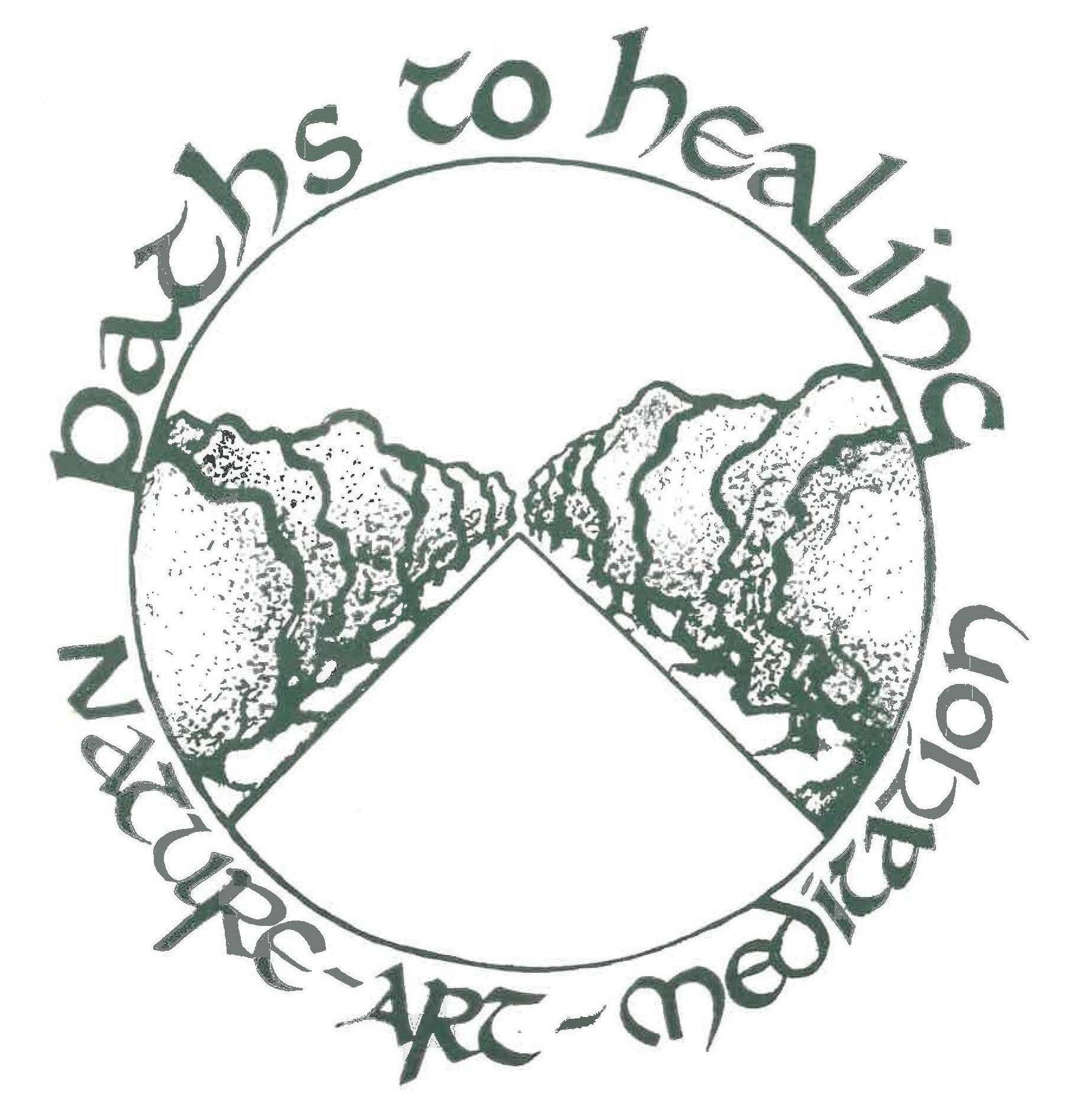
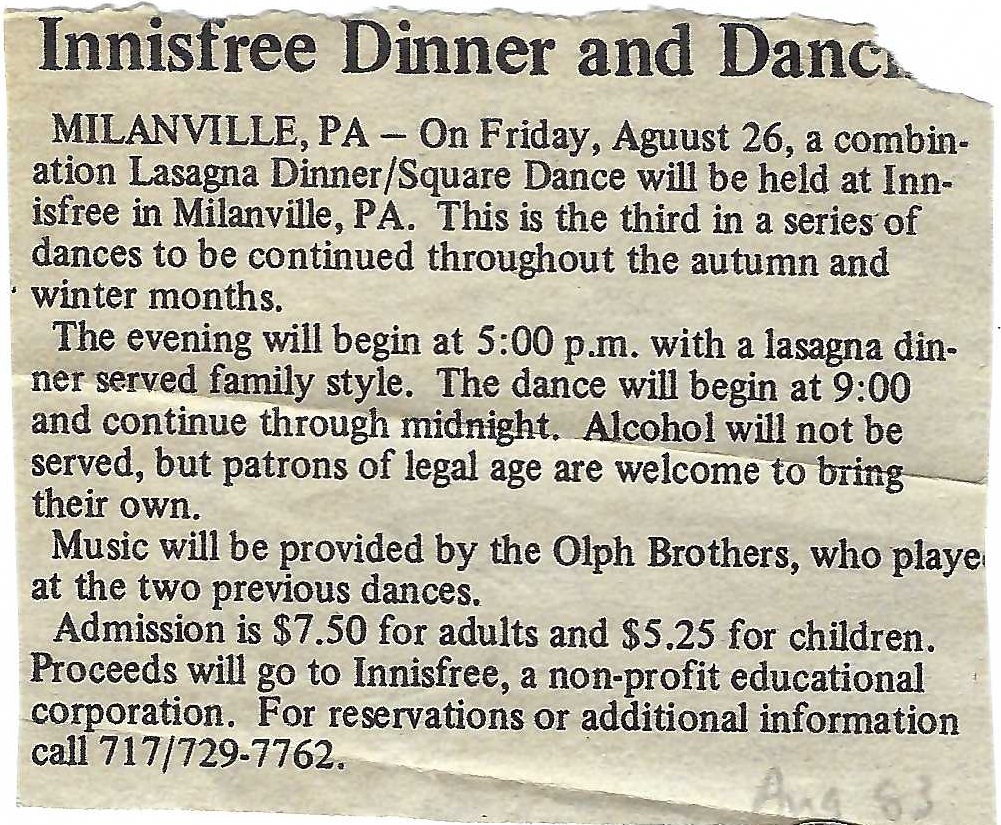
Over the next decades, numerous diverse groups and educational institutions rented space at Innisfree or participated in programs operated by Innisfree Corporation, including a summer-long women's theater seminar hosted by Lynn Laredo in 1975, groups from Trenton State and Lafayette Colleges, family gatherings, private events, and public-school groups, family reunions, and social events and organizations.
Many varied guests over the years asked questions or commented about the history of the place, impressed not only by the verdant majesty of our river valley, but by the master workmanship of Innisfree's builder, a self-taught mason, carpenter, plumber, poultry farmer, and boarding house operator. Living there, we became accustomed to answering questions about the history of the place and of Innisfree Corporation. The present owner, Cynthia Nash, who has lived at the Innisfree property since she purchased it in on July 17, 1998, tells me that she receives similar questions from admiring guests who come to her home. (See "InnisfreePA" on Facebook.)
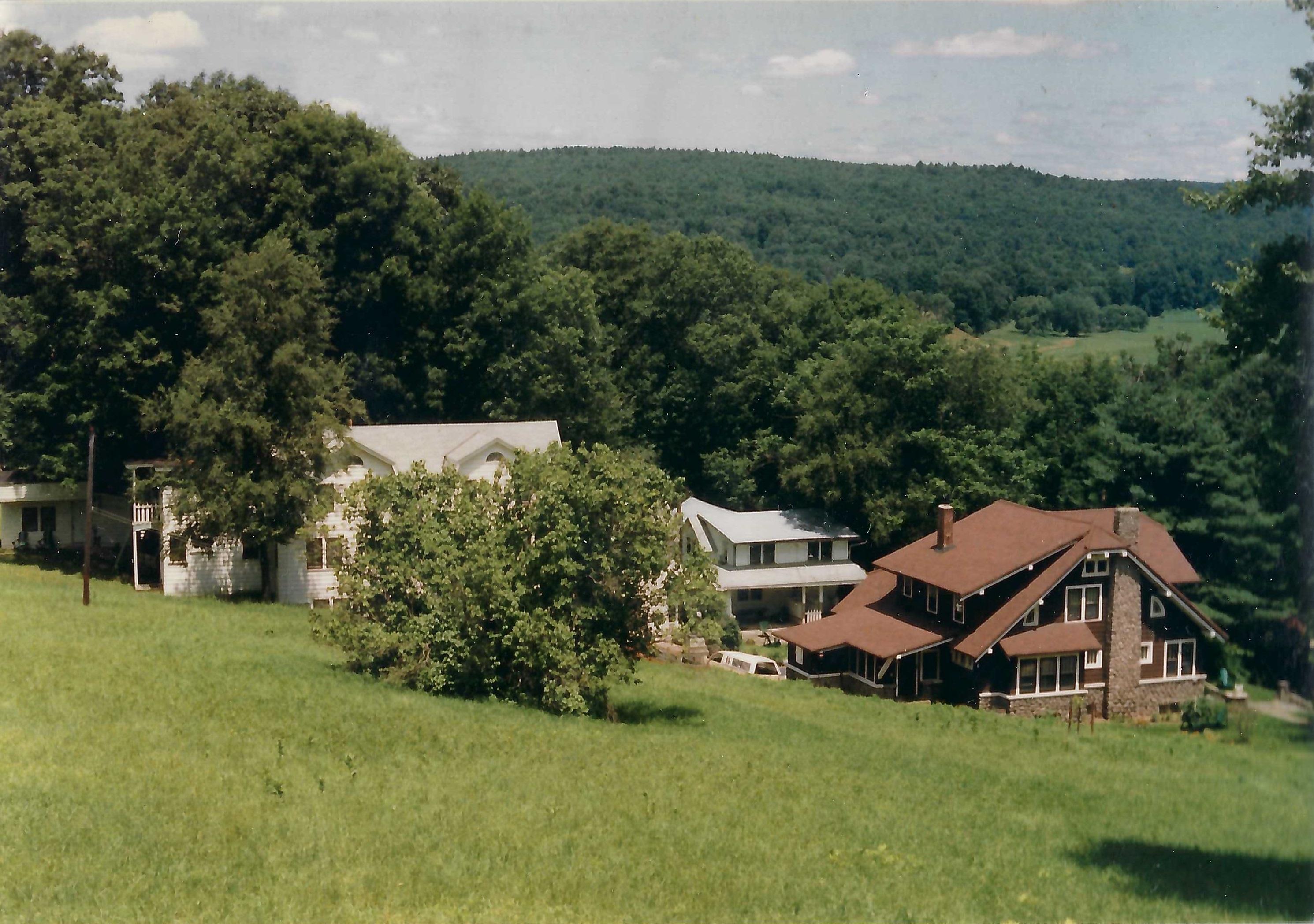
In former days, the eastern end of the property, facing River Road, was populated by a large dormitory building that was demolished after a fatal fire on August 25, 2002, as well as the large brown structure we called the main house facing River Road (still standing, under new ownership) where meals were then served to up to 60 campers or residents at a time); an insulated year-round recreation hall with a well-equipped carpentry shop in the basement; a working forge in the garage; a small cottage behind the dormitory (seasonal only); a garage/chicken coop building which was leased for a while in the early 1970s to Hawkey Candle Co.
The western 10 or so acres of the property I recall as being heavily wooded, with one roughly hewn path up the steep slope (described by the prior owner, Oscar Ropke, as "Billy goat land") ending near a point where sometime before 1970 someone had erected a TV and radio reception tower that was tall enough to have been effective, but no longer was. Being at Innisfree meant being without a working television (or very faint snow), which I now recognize as having been a blessing. Some residents of Milanville during those years subscribed to Willard Dilmuth's tower, but Innisfree chose not to have a TV for many years, and it was good. I never heard a visitor, guest, or camper at Innisfree complain about the lack of a television.
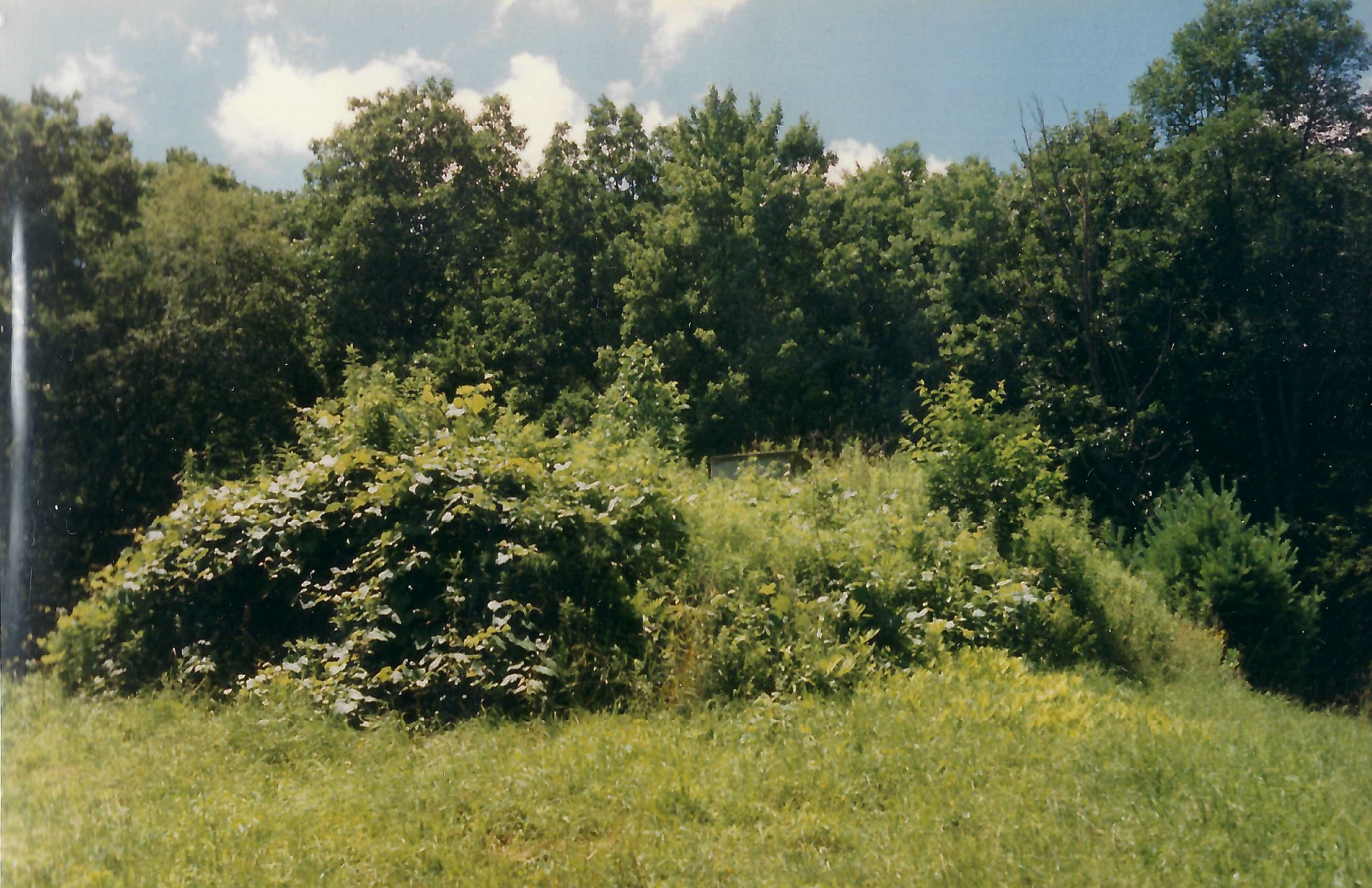
Back: Chapter 5 - Separation in space and time | Next: Chapter 7 - Valuable stuff in the ground


